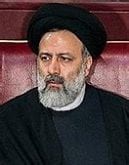Al-Monitor – As momentum builds toward a revived nuclear pact between Iran and world powers, Israel has privately expressed concerns to the United States about the fate of a multiyear investigation into past Iranian nuclear activity.
After nearly a year and a half of indirect talks aimed at salvaging the 2015 Joint Comprehensive Plan of Action (JCPOA), Israel has issued some of its sharpest public criticism yet of the emerging deal, which if implemented, would offer Iran sanctions relief in exchange for curbs on its nuclear activities.
“Israel is not against any agreement,” Israeli Prime Minister Yair Lapid told reporters on Wednesday. “We are against this agreement because it is a bad one.”
Lapid’s comments came as Israeli officials mounted a behind-the-scenes effort in Washington this week aimed at ensuring additional compromises are not granted in the current back-and-forth with Iran.
Israel’s national security adviser Eyal Hulata discussed Iran with his US counterpart Jake Sullivan on Tuesday at the White House. On Friday, Israeli Defense Minister Benny Gantz will hold another round of talks in Washington.
Topping the list of Israeli concerns is Iran’s demand that the United Nations’ atomic watchdog shut down its three-year inquiry into alleged safeguard violations at several of Iran’s nuclear sites. The Iranians have made implementation of a deal contingent on the International Atomic Energy Agency closing what Iranian adviser Mohammad Marandi called the “false accusations file.”
The latest European draft proposal to revive the 2015 agreement offered to close the investigation if Iran provides the IAEA with technically credible explanations for the traces of uranium before implementation day, reports Politico.
The IAEA is not a signatory to the JCPOA. Israeli officials say it would be a mistake to link the two, arguing that the years-long investigation is beyond the scope of the original nuclear accord. Once a deal is signed, they fear there will be international pressure on the UN watchdog to close the file even without satisfactory answers from Iran.
Speaking on condition of anonymity, a diplomatic source familiar with Hulata’s meetings said US officials told their Israeli counterparts this week that the United States would not push the IAEA to close the investigation prematurely.
A State Department spokesperson told Al-Monitor on Tuesday that the US position on the safeguards probe is “crystal clear and has been communicated repeatedly in public and in private to Iran.”
“Iran needs to answer the IAEA’s questions. That is the only way to address these issues,” the spokesperson said.
Some background: In 2015, the IAEA closed the books on its long-running probe into Iran’s past nuclear activity with a resolution that paved the way for implementation of the JCPOA. But in 2019, the agency opened its current investigation into the origin of decades-old uranium traces found at three of Iran’s old but undeclared nuclear sites. Information obtained by Israeli agents in 2018 led to the IAEA’s discovery.
Iran continues to stonewall UN inspectors. The IAEA said in May that the Iranians hadn’t provided “technically credible” explanations for the uranium, and in June, the agency censured Iran over its failure to cooperate. The Islamic Republic responded by disconnecting some of the IAEA cameras monitoring its nuclear sites.
Why it matters: The Iranians did not object to the latest EU-proposed language on the IAEA probe, but that doesn’t mean the issue is off the table for good.
“There is still a possibility that Iran might reopen the question of safeguards,” Ali Vaez of the International Crisis Group told Al-Monitor. “In the past there have been issues that were seemingly resolved, only to reemerge as the parties get bogged down over other differences.”
Iran insists the IAEA investigation is based on fabricated evidence. On Thursday, Iranian Foreign Minister Hossein Amir-Abdollahian reiterated Tehran’s call for the agency to drop its investigation.
“We are very serious about safeguard issues, and do not want to allow some of the IAEA’s baseless accusations to remain,” Amir-Abdollahian said.
What’s next: Iranian Foreign Ministry spokesperson Nasser Kanaani said that Tehran is carefully studying the US response to its proposed changes to the European draft text and “will share its comments with the coordinator upon completion of the review.” National Security Council spokesperson John Kirby told reporters Wednesday that a deal is now closer, but “gaps remain.”
Know more: Elizabeth Hagedorn and Andrew Parasiliti dig into this issue in The Takeaway. Plus, Ali Hashem breaks down the current state of the nuclear negotiations in the “On The Middle East” podcast.
 Shabtabnews In this dark night, I have lost my way – Arise from a corner, oh you the star of guidance.
Shabtabnews In this dark night, I have lost my way – Arise from a corner, oh you the star of guidance.



